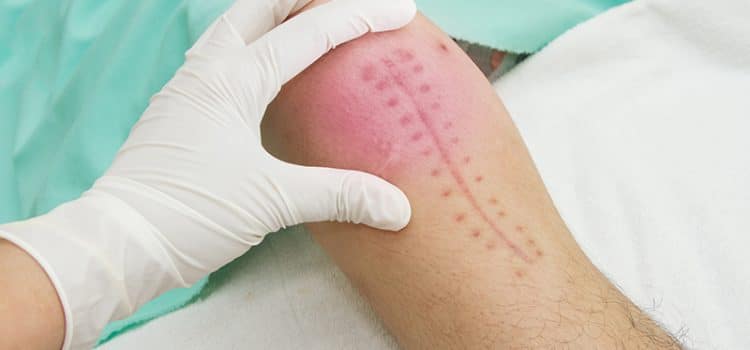Adults who stay active through much of their lives enjoy many health benefits, but also run the risk of overuse injuries, direct trauma, and degenerative diseases. One of the most common of these is osteoarthritis, often manifesting itself in the knee.
For older adults with osteoarthritis or other lower leg injuries, knee replacements are becoming some surgeons’ standard of care. While knee replacements typically restore function to active adults with serious knee injuries, they also come with several complications and are frequently not necessary in the first place.
Complications of Knee Replacements
While knee replacements are relatively commonplace, there are a variety of serious complications that can arise from the operation itself.
Nerve Damage
When surgeons replace the entire knee joint, they do their best to leave the nerve endings, muscles, and ligaments perfectly intact. Unfortunately, that is not always the outcome for some patients. Nerve damage, often permanent, is sometimes seen after knee replacement surgery. Unfortunately, this can lead to patients having even more difficulty walking and running than they did prior to the surgery.
Infections
Infections are a relatively rare complication of surgery, but they are more likely to happen in those who are elderly or immuno-compromised. Patients with arthritis, a common cause for knee replacements, are especially at risk of infection after surgery.
Blood Clots
Blood clots present a significant risk to elderly patients receiving knee replacements. Deep vein thrombosis, in particular, is a life-threatening disorder that commonly arises in legs that are inactive for long periods of time, such as after recovering from a major surgery. In extreme cases, these clots can form and travel to the heart. Knee replacement surgery carries a higher risk of blood clot complications than many other common types of surgery.
Alternatives to Knee Replacement Surgery
Knee replacement surgery rates have risen over 150 percent in the last 20 years. Many doctors view knee replacements as a standard procedure, but that does not mean knee replacements are the correct choice for everyone. Full recovery can take up to a year for many patients, coming with months of difficult rehabilitation and expensive physical therapy. Thankfully, Platelet Rich Plasma therapy, or PRP, has become a high-quality alternative to knee replacement surgery.
Platelet Rich Plasma therapy is a relatively advanced therapy commonly used by professional athletes to rehabilitate from serious injuries. The procedure takes the patient’s own blood, isolates the Platelet Rich Plasma from the blood and then injects that plasma into the site of injury.
For patients struggling with knee injuries or osteoarthritis, PRP can reduce inflammation, ease discomfort, and introduce growth factors, enhancing the healing process.
Knee replacement surgery is a valid procedure, but before patients commit to such a serious surgery they should consider viable alternatives like Platelet Rich Plasma therapy.
If you or your loved ones are thinking about knee replacement surgery, please call please call (631) 485-1137 to learn more about PRP injections.
